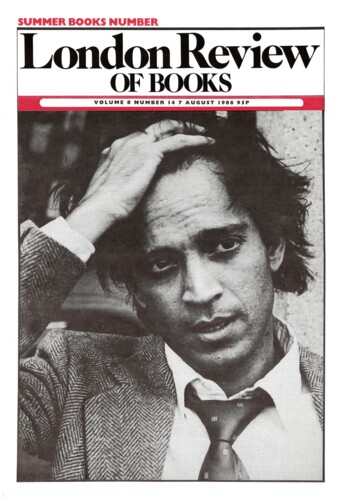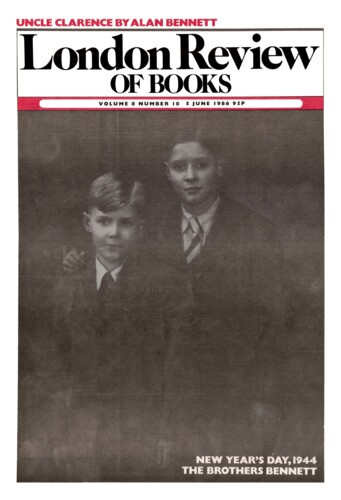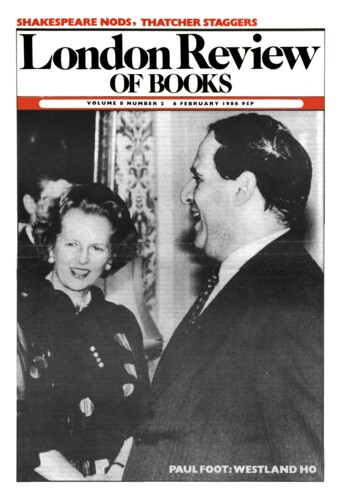Turns of the Screw
Hugh Barnes, 7 August 1986
The first novels of Lewis Nkosi and Catharine Arnold raise issues that have been in the news of late: racist oppression in South Africa and the ugly behaviour of the smart set at England’s oldest universities. Neither phenomenon is new, but that is not all they have in common: both can be regarded as symptoms of madness, which is always making news – this, at any rate, is the diagnosis favoured by Nkosi and Arnold. They discount the talk of journalists and are at pains to show how states of emergency or of madness come about, and how adversity in the world modifies concern for the self. Much emphasis is laid on the unconscious activity of the mind, which for Sibiya in Mating Birds as well as for Francesca in Lost Time means horrid imaginings, displacement and a fear of poltergeists. Capitulation is charted: Sibiya awaits execution in a Durban jail, although the Government is about to fall and from his cell he can hear street-singers announcing ‘the near-dawn of freedom’. Francesca, a famous concert cellist, suffers private madness – as opposed to the collective variety accountable for apartheid – in the form of a nervous breakdown. At the same time taboos are flouted by the characters and invoked by the authors as if they were the unconscious of society. Sibiya’s crime was to sleep with a white woman, while a revelation of incest, for which a neglectful father is held to be responsible, contributes to Lost Time. In each case the novelist has recourse to psychoanalytic theory, and a meaningful relationship would seem to be implied between free societies and the free association of ideas.’





